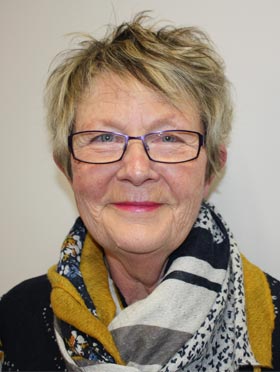
It is more than 10 years since the EN scope of practice was reviewed. In 2009, then-Minister of Health Tony Ryall directed the Nursing Council of New Zealand (NCNZ) to work with district health boards (DHBs) and the Ministry of Health (MoH) to “expand the role and training of ENs”.1
The NCNZ consulted widely with DHBs, polytechnics and the ENS on expanding the scope, before releasing a consultation paper.
A revised scope suggested by ENS was used in the initial consultation then – after some changes – accepted. It allowed ENs to practise to the top of their scope. However its adoption has varied around Aotearoa, particularly in our DHBs and aged residential care (ARC) facilities.
Since 2010, EN positions have evolved into the following areas:
- Providing home haemodialysis.
- General practice.
- Prisons and corrections facilities.
- Authorised vaccinators, for those ENs having undertaken the provisional vaccination programme from the Immunisation Advisory Centre (IMAC).
- Working with intubated patients in a spinal unit, with registered nurse (RN) support.
- Assessors and co-ordinators in home-based care organisations and needs-assessment and service coordination (NASC) assessors in some DHBs.
- DHB mental health settings across New Zealand.
- In 2019, the Government provided funding for 40 EN positions in primary health care in mental health and addictions. A project group is assisting ENs to gain positions within this setting.
In 2019, ENS surveyed 756 ENs to ask if they understood their scope and thought colleagues understood.2 In response, 99 per cent said they understood their own scope but only 37 per cent believed colleagues such as RNs, midwives, nurse practitioners, directors of nursing, workplace educators and other regulated health professionals understood it.
More than two-thirds believed that the most restrictive part of the EN scope was the requirement to practise under direction and delegation of colleagues.
So the ENS suggested to NCNZ that direction and delegation should be replaced with “in collaboration and partnership with the Registered Nurse or Nurse Practitioner”. NCNZ responded that it would probably be undertaking a full review of the EN scope of practice.
However, we are still waiting for confirmation of when this will happen.
We are now hearing reports from ENs that health-care assistants, who are unregulated, are being allowed to do assessments, observations, blood sugar levels and wound care and provide medication from blister packs. This is mainly happening in ARC facilities but has also been seen slowly creeping into DHBs.
ENs believe it is time for our scope to be further expanded, enabling us to practise to the extent of our skills and abilities, and that we be recognised for the skills, knowledge and education we bring to our roles.
While we now have a national curriculum for enrolled nursing in the form of a national diploma, our practice varies around the country.
A new scope of practice should be extend and enable ENs, and not be a backwards step. This should also be aligned to the revised RN education framework and competencies, so an achievable pathway is available into the Bachelor of Nursing for ENs.
Nursing Council chief executive Catherine Byrne said the council was currently developing a new strategic plan for 2022-2024.
“The EN scope and education standards I expect to be part of the council’s future strategic work. The timelines for this work are uncertain, however the council recognises the importance and the need for this work.
I hope to have more information to share later in the year when we are in a position to determine the strategic imperatives to the plan.”
References
- Beehive. (2009, March 28). Enrolled nurses on the agenda [press release].
- New Zealand Nurses Organisation: Enrolled Nurse Section. (2019). Enrolled Nurses – Scope of Practice Survey (PDF 793 KB).



